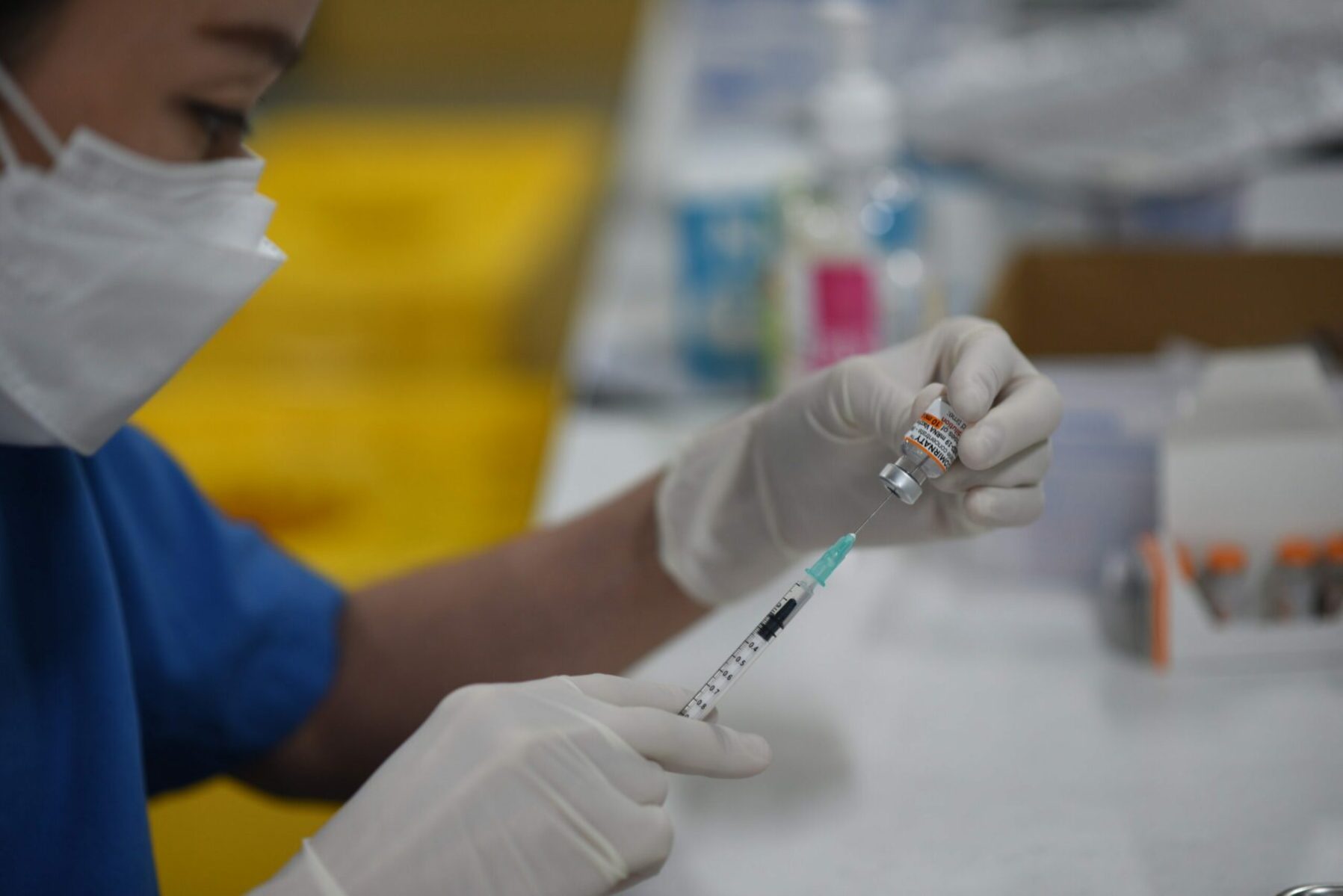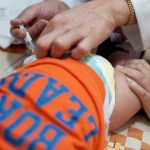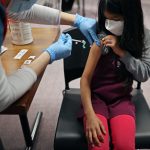Forty-three percent of parents with children under 5 say they will “definitely not” get them vaccinated against COVID-19, according to a new report from the nonpartisan Kaiser Family Foundation. Only 7 percent of parents say they have had their young children vaccinated, and 27 percent want to “wait and see” how the vaccine impacts other young children first.
KFF conducted the survey of 1,847 U.S. adults in English and in Spanish online and by phone from July 7 to 17. It’s the first such survey since the Food and Drug Administration authorized two COVID-19 vaccines for children from 6 months to 4 years old in June.
Parents expressed hesitation about the vaccine for their children regardless of whether they themselves were vaccinated.
Two-thirds of unvaccinated parents say they will “definitely not” get their young children vaccinated — a result Lunna Lopes, a senior survey analyst and principal author of the report, described to The 19th as “unsurprising.”
“Obviously, parents who are unvaccinated themselves say that they’re definitely not going to vaccinate their young children,” Lopes said.
But even among parents who are vaccinated, over a quarter said they would definitely not get their young children vaccinated. One in 10 say they will vaccinate their children only if they are required to by child care providers. A third say they will “wait and see.”
“A lot of vaccinated parents want to see how the rollout goes for that age group before making a decision,” Lopes said.
According to the American Academy of Pediatrics, the COVID vaccine is safe and effective for children under 5. Since 2020, over 2 million children under 5 have contracted COVID-19 in the United States, and over 500 have died from it, according to the Centers for Disease Control and Prevention.
Dr. Daniel Summers is a pediatrician practicing in North Andover, a suburb of Boston. Massachusetts has one of the highest vaccination rates in the country at 80 percent, but many families Summers sees are uncertain. Summers is not affiliated with the KFF survey.
“I try to front load conversations [about the COVID vaccine] with a disclaimer that I am not trying to change their minds in the moment. Instead, I want to give my perspective on the question, so they can give it further thought … My job as a pediatrician is to take their risks to the lowest possible level. That’s why I want to get them vaccinated,” he said.
The top reason cited by parents in the study for avoiding the vaccine for young children is fear of how new the vaccines are and how quickly they were developed.
“Research on the coronavirus vaccine actually goes back to the outbreak of SARS,” Summers said. “It’s not as new as a lot of parents think.”
Many parents in the report are also uncertain if their children even need to get vaccinated against COVID-19. COVID is generally more mild in children.
“I would never want to overstate the risks. From a population level, younger patients tend to be at low risk for serious illness. However, low risk is not zero risk,” Summers said. In comparison, the risks of the vaccine are negligible.
Seventy percent of parents in the study said they had not spoken to their pediatrician about the decision to vaccinate. Lopes believes that pediatricians may play a key role in changing parents’ minds.
“Among the parents who were vaccinated, most of them said they are probably going to talk with their pediatrician at their child’s regular appointment…As parents take their kids to their annual checkups they may get more information and build an additional comfort level with getting their young child vaccinated,” Lopes said.







